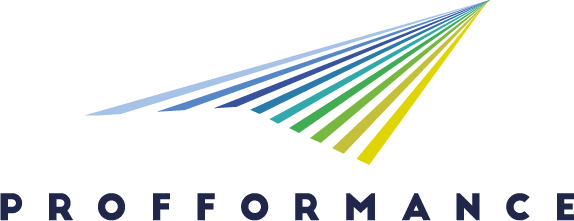Climate Action, Now!
Climate Action, Now! Museen im (Klima-)wandel / Climate Action, Now! Museums in (Climate) Change
- 02 - Arts and humanities
4. Impact and mission with and for society
- Research-based teaching and learning
- Service-learning and active citizenship learning for impact in society
- Promoting social responsibility through teaching professional and ethical values
- Teaching through real social projects addressing society’s global challenges
- Joint practices with social partners and stakeholders of civil society for empower students to active citizenship
This innovative seminar, "Climate Action, Now! Museums in (Climate) Change", addresses the intersection of museums and the climate crisis, equipping students to respond to global challenges. Offered in the MA program Expanded Museum Studies, it combines theoretical insights with practical applications in collaboration with KunstHausWien, a pioneer in sustainable museum practices. Innovative Aspects: The seminar emphasizes experiential learning through real-world projects, bridging academic study and professional practice. Students explore tools like CO₂ accounting and sustainable exhibition design, while interdisciplinary collaboration enhances their skill set. Partnerships with external experts enable direct contributions to sustainability efforts, positioning museums as drivers of environmental and societal change. Activities and Methods: The course blends lectures, guest speakers, and hands-on group work. Topics include climate communication, operational carbon footprints, and sustainable exhibitions. Collaboration with KunstHausWien anchors the seminar in professional realities, with key projects to: 1. Create a CO₂ inventory for KunstHausWien, identifying emissions and proposing reduction strategies following greenhouse gas protocols. 2. Develop a sustainable exhibition guide for curators, artists, and stakeholders, consolidating best practices in design and procurement. 3. Archive and categorize the Future Talks video series, improving accessibility with filters, metadata, and keywords for public and professional use. Outcomes and Impact: The seminar equips students with actionable skills to address sustainability in cultural institutions, fostering leadership and innovation. For KunstHausWien, it delivers practical tools: a CO₂ inventory for strategic climate action, a sustainable exhibition guide, and an enhanced video archive promoting accessibility and climate discourse. These results highlight the capacity of museums to drive change, inspiring new strategies for sustainability in the cultural sector. Alignment: Focusing on sustainability, the seminar aligns with global climate goals and underscores the transformative potential of cultural institutions. Its hands-on approach ensures students not only learn about sustainability but also implement real solutions, bridging academic knowledge, professional practice, and societal impact.
Methodology
Tools, equipment, technology used
Outcomes and outputs, main results
Lessons learnt
Adaptability and sustainability of the best practice (for other institutions)
Promotion of best practice
Scope and impact
- Course/department level
- Institutional level
- Cross-institutional level
- National level
- EU/EHEA/International level
6.1 Digitalization
- Outstanding, innovative, excellent practices of online / blended / hybrid learning
- Innovative, novel methodology in using digital tools/devices in teaching
- Digital skills development and assessment both general and profession-related, embedded in course design, in teaching and assessment
Reasoning: The seminar uses a hybrid learning model, combining in-person, online, and asynchronous elements to reduce travel emissions and enable global participation. Digital tools like ClimCalc and other CO₂ accounting tools allowed students to conduct carbon footprint assessments. Virtual platforms supported collaboration with experts, enhancing digital skills while fostering engagement in climate action projects.
6.2 Internationalization
- Outstanding practices of international online collaborative learning
- Students engagement in international projects
- Courses implemented in international cooperation (projects, co-teaching, virtual/blended mobility, etc.)
Reasoning: The seminar employed international online collaborative learning, with course leaders and experts from both Vienna and Berlin. Students worked on real-world sustainability projects alongside professionals from different countries, fostering international cooperation. The hybrid course format facilitated global participation, ensuring diverse perspectives in tackling climate action challenges. Collaborations with international cultural institutions further enriched the experience.
6.3 Inclusion and diversity, universal design
- Inclusive course design, universally designed divers activities to meet special students' needs
- Innovative teaching methodology for inclusion and meet diverse student needs
- Senzitivizing students to consider special needs when practicing their profession
- Course includes hints on how the services/products of the profession could be universally designed/inclusive
Reasoning: The seminar's inclusive course design ensured all students could engage with content regardless of their background. A variety of teaching methodologies were employed, accommodating diverse learning styles, including hybrid formats and interactive platforms. The course emphasized sustainability and climate action, encouraging students to consider universal design in future professional practices, ensuring environmental solutions are accessible to all communities.
6.4 Sustainability
- Sustainability goals are addressed in the course(s)
- Teaching material contains profession related sustainability aspects
- Social entrepreneurship projects, service-learning in the topic
- Environmental attitude, skill development and assessment either general or profession-related
- Sustainability aspects are considered in all phases of the learning practice - "hidden curriculum"
Reasoning: Sustainability is central to the seminar's content and methodology. The course addresses sustainability goals, using tools like ClimCalc for CO₂ accounting and sustainable exhibition planning software. Students engage with environmental challenges and solutions, working on projects that reduce museums' carbon footprints. 1. Course content on sustainability: The course integrates sustainability through CO₂ footprint assessments, exhibition design, and climate communication, aligning with Austria's climate strategy and the EU's Green Deal. 2. Teaching methodology: The hybrid course, combined with real-world projects like the CO₂ balance for KunstHausWien, enables practical sustainability learning, fostering problem-solving skills. 3. Assessment of sustainability: Students apply sustainability principles in hands-on projects, ensuring they understand and can implement these concepts professionally. 4. Student engagement with sustainability challenges: Collaboration with KunstHausWien
3.3 Public contact datas
| Name | Email address | Website |
|---|---|---|
| Tanja Kimmel / Sina Herrmann | tanja.kimmel@uni-ak.ac.at | https://base.uni-ak.ac.at/courses/2024W/S05435/ |

